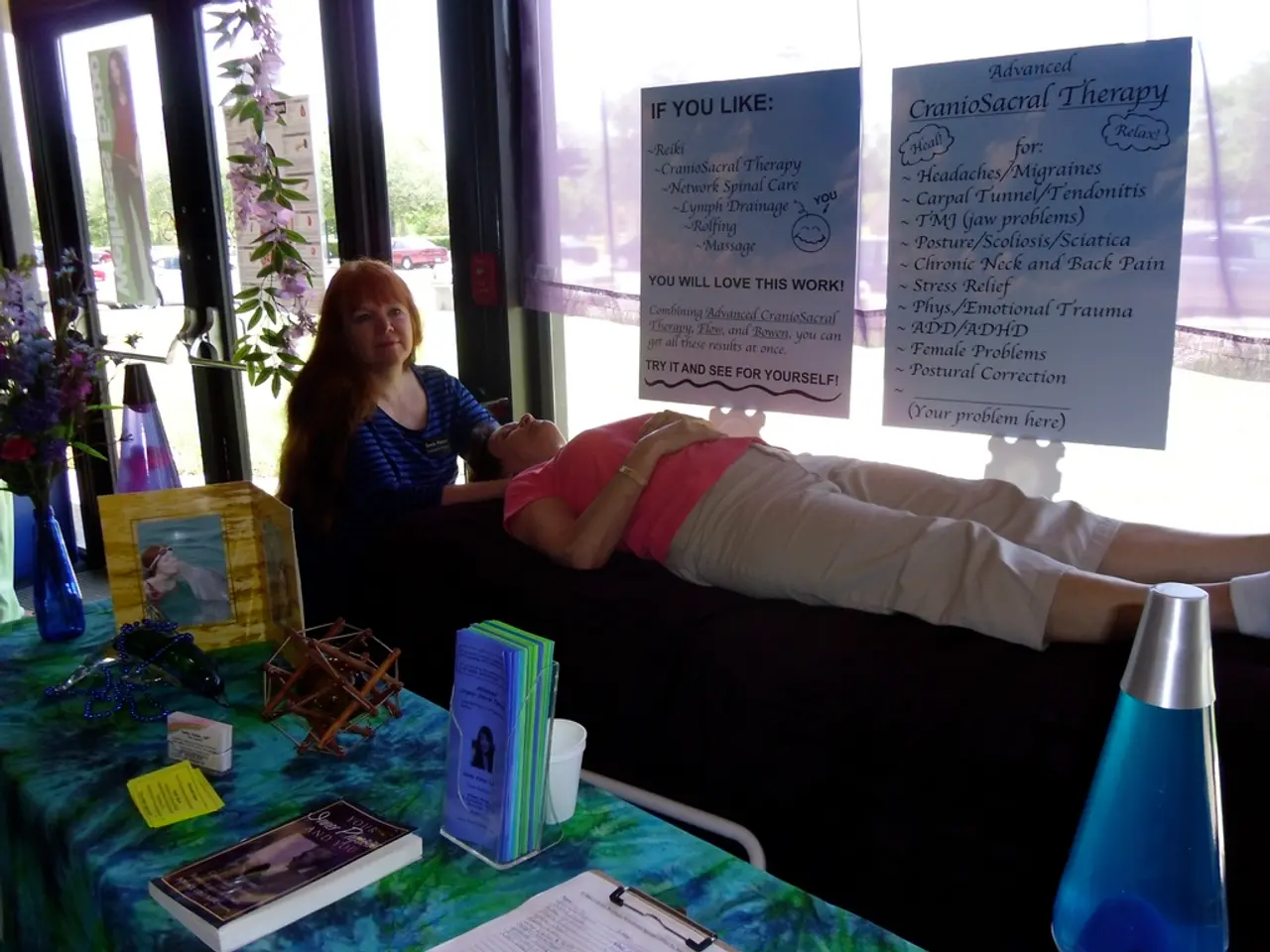Advantages of Companionship with an Individual Undergoing Therapy
In today's world, the importance of mental health is increasingly being recognised, and this is particularly true in the realm of relationships. Therapy, once a subject often shrouded in stigma, is now becoming a common tool for fostering open communication and reducing the stigma surrounding mental health.
People tend to categorise those who attend therapy based on social stigma, stereotypes, or assumptions linked to mental health. This categorisation is often influenced by a lack of understanding, fear, or cultural attitudes that associate therapy with psychological problems or weakness. However, as more and more people embrace therapy, these misconceptions are gradually fading away.
Ryn Pfeuffer, a 48-year-old resident of Washington, is one such individual who values the importance of mental health in a relationship. Ryn prefers partners who prioritise their mental health and have someone already on their team who understands their history, should issues arise.
This shift in attitude is reflected in the dating community as well. In 2022, the dating app Hinge released predictions showing that 91% of its users prefer to date someone who goes to therapy. Furthermore, 97% of Hinge users prefer to date someone who actively takes care of their mental health.
However, it's important to note that everyone has their own path in therapy, and it's crucial to respect that not everyone may be ready to go to therapy immediately. If discussing personal experiences in therapy feels too vulnerable, broader conversations about mental health and relationships can be initiated instead.
For those who aren't open to therapy, alternatives such as self-help books, workshops, or online classes can help promote personal growth and relationship improvement. Morgan Mandriota, a New York-based writer specialising in sex, relationships, mental health, and alternative approaches to wellness, emphasises the importance of personal growth and reflection in a relationship.
Despite the benefits of therapy, it's essential to be aware of potential pitfalls. Relationship issues can flare if someone is too dependent on their therapist or uses what they learn in therapy against a partner. A therapist cannot ethically tell a person to leave their partner, but they may open a partner's eyes to issues within the relationship they hadn't noticed before, which may lead to a breakup.
Ultimately, a partner's dedication to personal growth and the relationship is more important than whether or not they go to therapy. Two-thirds of Hinge users are open to trying couples therapy in the future, indicating a growing acceptance and willingness to seek help for relationship issues.
It's recommended to bring up the topic of therapy as a personal value early in the relationship, such as within the first five dates. This not only shows a commitment to personal growth but also helps to prepare potential partners for the topic should it arise in the future.
In conclusion, the integration of therapy into modern relationships is a positive step towards open communication, understanding, and personal growth. As more people embrace therapy and the importance of mental health, the stigma surrounding it continues to fade, paving the way for healthier, happier relationships.








